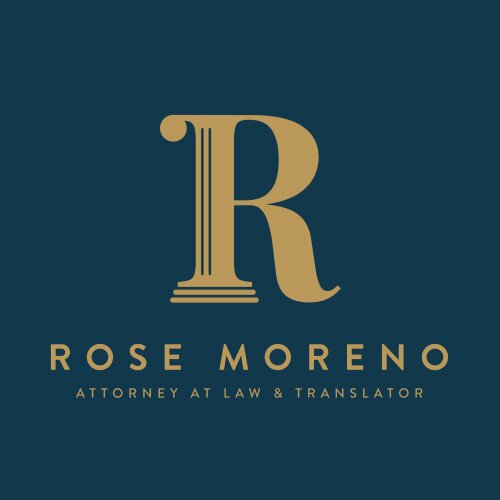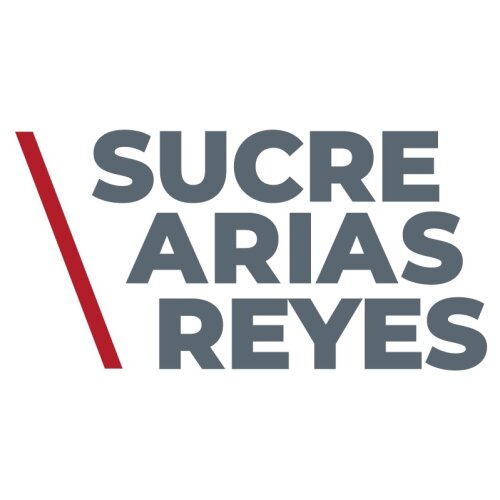Best Probate Lawyers in Panama
Share your needs with us, get contacted by law firms.
Free. Takes 2 min.
Or refine your search by selecting a city:
List of the best lawyers in Panama
About Probate Law in Panama:
Probate in Panama refers to the legal process of administering the estate of a deceased person, including resolving any claims and distributing assets to beneficiaries. This process is overseen by the courts to ensure that the deceased person's wishes are carried out in accordance with local laws.
Why You May Need a Lawyer:
Some common situations where you may require a lawyer for Probate in Panama include disputes among beneficiaries, complex estates with multiple assets, or if you are unfamiliar with the local laws and processes involved in probate. A lawyer can help navigate the legal system and ensure that the probate process runs smoothly.
Local Laws Overview:
In Panama, probate laws are governed by the Civil Code and the Code of Civil Procedure. Key aspects of local laws relevant to probate include inheritance rights, estate administration, and the distribution of assets. It is important to be familiar with these laws to ensure that the probate process is carried out correctly.
Frequently Asked Questions:
1. What is the probate process like in Panama?
The probate process in Panama involves submitting a petition to the court, identifying and valuing the deceased person's assets, paying debts and taxes, and distributing assets to beneficiaries.
2. Do I need a lawyer for probate in Panama?
While it is not required to have a lawyer for probate in Panama, having legal representation can help ensure that the process is carried out accurately and efficiently.
3. How long does the probate process typically take in Panama?
The duration of the probate process in Panama can vary depending on the complexity of the estate and any disputes that may arise. It can range from a few months to several years.
4. What happens if someone dies without a will in Panama?
If someone dies without a will in Panama, their assets will be distributed according to the laws of intestacy, which determine how assets are distributed among heirs.
5. Can I contest a will in Panama?
Yes, it is possible to contest a will in Panama if you believe there are grounds to do so, such as fraud, undue influence, or lack of mental capacity.
6. Are there taxes on inheritance in Panama?
Yes, there are inheritance taxes in Panama that may apply depending on the value of the estate and the relationship between the deceased person and the beneficiaries.
7. Can I avoid probate in Panama?
There are ways to avoid probate in Panama, such as creating a revocable living trust, naming beneficiaries on assets, or using joint ownership with rights of survivorship.
8. How can a lawyer help me with probate in Panama?
A lawyer can help guide you through the probate process, ensure that all legal requirements are met, represent your interests in court, and resolve any disputes that may arise among beneficiaries.
9. What are the duties of an executor in Panama?
The duties of an executor in Panama include identifying and valuing the deceased person's assets, paying debts and taxes, distributing assets to beneficiaries, and handling any legal proceedings related to the estate.
10. How can I find a reliable probate lawyer in Panama?
You can find a reliable probate lawyer in Panama by asking for recommendations from trusted sources, researching online reviews, and scheduling consultations with potential lawyers to discuss your needs and expectations.
Additional Resources:
For more information on Probate in Panama, you can visit the Panama Judiciary website or contact the Panama Bar Association for a list of qualified probate lawyers who can assist you with your specific needs.
Next Steps:
If you are in need of legal assistance for Probate in Panama, it is recommended to consult with a qualified probate lawyer who can guide you through the process and ensure that your rights and interests are protected. Schedule a consultation to discuss your specific situation and to receive personalized legal advice tailored to your needs.
Lawzana helps you find the best lawyers and law firms in Panama through a curated and pre-screened list of qualified legal professionals. Our platform offers rankings and detailed profiles of attorneys and law firms, allowing you to compare based on practice areas, including Probate, experience, and client feedback.
Each profile includes a description of the firm's areas of practice, client reviews, team members and partners, year of establishment, spoken languages, office locations, contact information, social media presence, and any published articles or resources. Most firms on our platform speak English and are experienced in both local and international legal matters.
Get a quote from top-rated law firms in Panama — quickly, securely, and without unnecessary hassle.
Disclaimer:
The information provided on this page is for general informational purposes only and does not constitute legal advice. While we strive to ensure the accuracy and relevance of the content, legal information may change over time, and interpretations of the law can vary. You should always consult with a qualified legal professional for advice specific to your situation.
We disclaim all liability for actions taken or not taken based on the content of this page. If you believe any information is incorrect or outdated, please contact us, and we will review and update it where appropriate.
Browse probate law firms by city in Panama
Refine your search by selecting a city.










